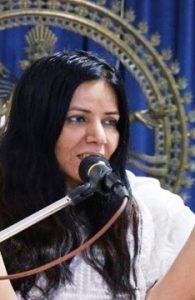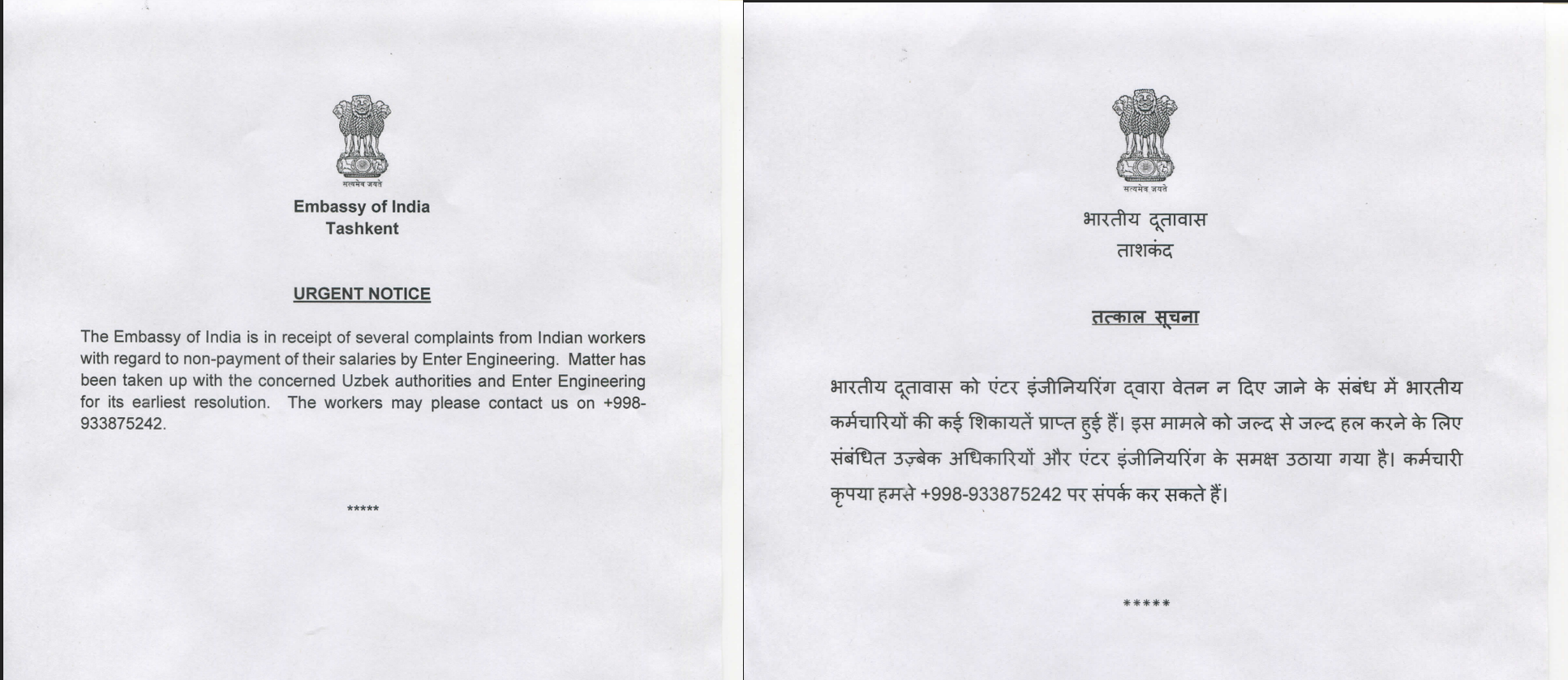Advisory on overcharging by agents for overseas recruitment, offering fake overseas jobs and illegal recruitment
It has been noticed that there has been a huge rise in the number of overseas job seekers being cheated by unregistered recruitment agents by fake job offers and also overcharging to the tune of Rs. 2-5 lakhs. These unregistered/illegal agents operate without obtaining license from the Ministry of External Affairs, which is mandatory for any recruitment for work abroad. It is reported that many illegal agents operate through Facebook, Whatsapp, text message and other such mediums. These agencies provide little or no details of their whereabouts and contacts. They usually communicate only through Whatsapp, making it difficult to ascertain the location and identity of the caller & genuineness of the job offer. Such agents also lure workers to work in difficult and life threatening conditions. Such cases are being reported for recruitment to work in several East European Countries, some of the Gulf countries, Central Asian countries, Israel, Canada, Myanmar and Lao People’s Democratic Republic.
A valid job offers come along with Employment Contract duly signed by Foreign Employer, recruitment Agent and the emigrant worker. The Employment Contract must mention term & conditions of the job being offered and the salary and other emoluments. Valid job offers must allow the worker to emigrate on strength of Employment or Work visa or other similar visa except tourist visa. It may be noted that tourist visa should only be used for the purpose of tourism. Normally, reputed Foreign Employers provide for cost of airfare, boarding & lodging and insurance cover.
Emigrant workers should make themselves aware of local conditions of the destination country. The information may be obtained by attending Pre-Departure Orientation Training (PDOT) Centers or from the Community Welfare Wing of the concerned Indian Embassy in the destination country. Government of India makes it mandatory for registered recruitment agents to purchase Pravasi Bharatiya Bima Yojana (PBBY) for the migrant workers which provides various benefits including Rs. 10 Lakh sum assured on death cases and work related injury and medical expenses with one time premium (Rs. 275 for the cover of two years and Rs. 375 for the cover of three years).
In view of the above, persons seeking jobs abroad are requested to use the safe and legal services of registered Recruiting Agents (RA) only. All registered RAs are issued a license number which is prominently displayed in their office premises and in their advertisements, including newspapers and social media. Prospective emigrants are advised to cross check the genuineness of the RA by visiting the government website www.emigrate.gov.in ![]() and click the link “List of active RA”. As per the Emigration Act 1983, no recruiting agent shall collect from the prospective emigrant the service charges more than Rs. 30,000 + GST (18%), in respect of services provided by it to that emigrant and the recruiting agent shall issue a receipt to the emigrant for the amount collected by it in this regard. Going abroad through any other channel of recruitment involves serious risk of being defrauded of money, not landing in the promised job and difficult living conditions abroad. All unregistered agencies are being warned not to involve in overseas recruitment activities. Such activities are in violation of Emigration Act 1983 and amount to human trafficking, which is a punishable criminal offense.
and click the link “List of active RA”. As per the Emigration Act 1983, no recruiting agent shall collect from the prospective emigrant the service charges more than Rs. 30,000 + GST (18%), in respect of services provided by it to that emigrant and the recruiting agent shall issue a receipt to the emigrant for the amount collected by it in this regard. Going abroad through any other channel of recruitment involves serious risk of being defrauded of money, not landing in the promised job and difficult living conditions abroad. All unregistered agencies are being warned not to involve in overseas recruitment activities. Such activities are in violation of Emigration Act 1983 and amount to human trafficking, which is a punishable criminal offense.
For complaints & queries kindly contact:
1. Pravasi Bharatiya Sahayata Kendra (PBSK), Ministry of External Affairs
Room No. 1005, 10th Floor, Akbar Bhawan, Chanakayapuri, New Delhi 110021
Toll Free No: 1800 11 3090 (Accessible from India only)
Chargeable No. +91-11-2688-5021 (Standard long distance call charges apply)
WhatsApp No. +91-7428 3211 44/E-mail: helpline mea.gov.in
mea.gov.in
2. Office of Protector General of Emigrants, Ministry of External Affairs,
Room No. 1009, 10th Floor, Akbar Bhawan, Chanakayapuri. New Delhi 110021
Email: pge mea.gov.in / diroe1
mea.gov.in / diroe1 mea.gov.in
mea.gov.in







